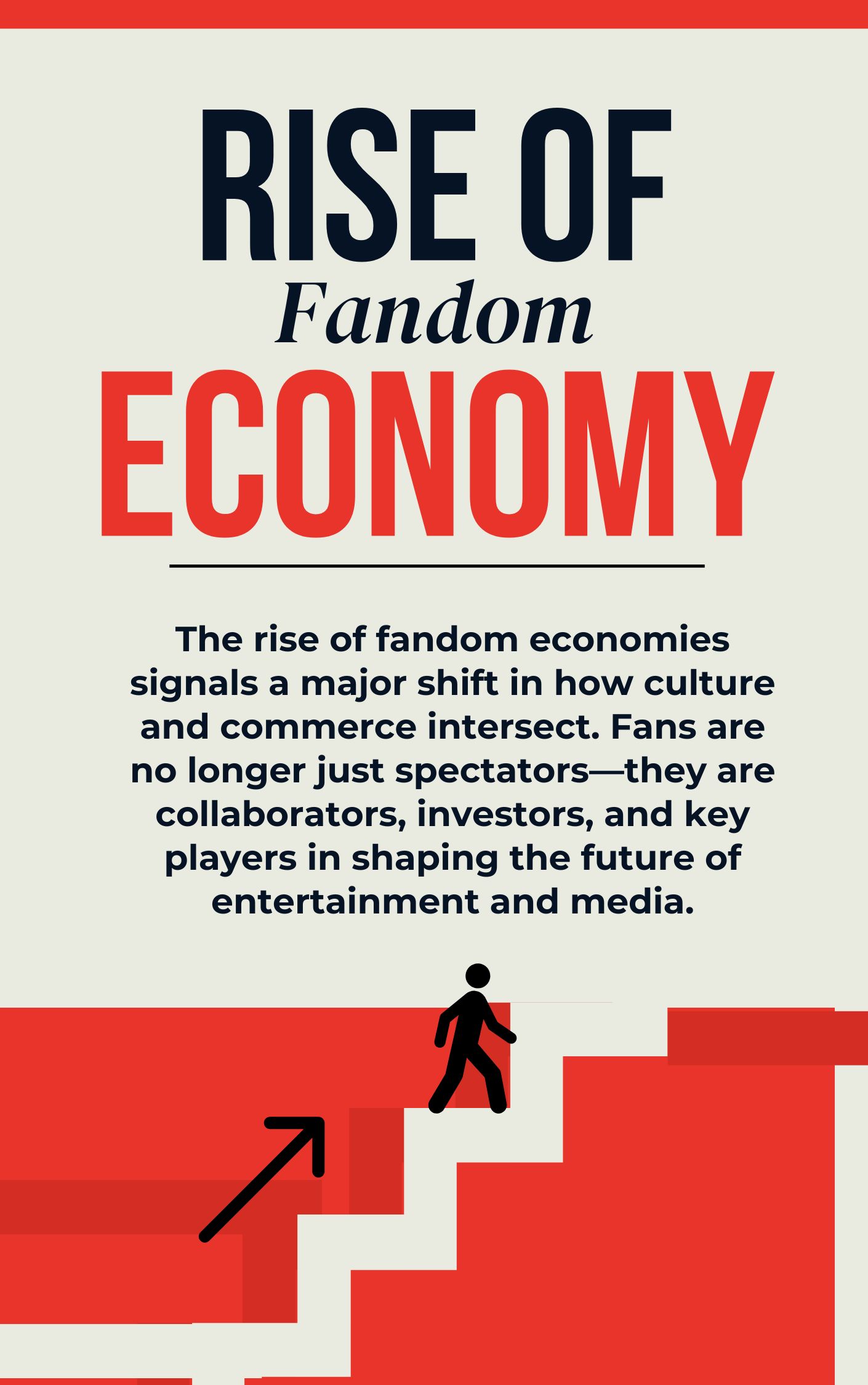e Rise of Fandom Economies: When Fans Become Stakeholders
In today’s hyper-connected world, fandom is no longer just about being a fan—it’s about being an active participant. Whether it’s gaming, music, sports, or film, passionate fan communities are evolving into powerful economies. These fandom economies are reshaping industries by turning fans into collaborators, investors, and even co-creators. The traditional boundaries between creator and consumer are disappearing—and fans are stepping into the spotlight as true stakeholders.
What Is a Fandom Economy?
A fandom economy refers to the financial and cultural ecosystem built around enthusiastic fan communities. It involves more than just buying merchandise or tickets; it’s about investing time, creativity, and sometimes even money into the success of the brand, artist, or franchise they love.
From crowdfunding campaigns and NFT purchases to content creation and fan-led marketing, fans are now directly influencing business decisions. Their support is not passive—it’s powerful, measurable, and, increasingly, monetized.
Fans as Financial Backers
One of the biggest shifts in recent years is fans becoming financial contributors to the projects they support. Platforms like Kickstarter and Patreon allow fans to fund the content they want to see—whether it’s an indie album, a documentary, or a video game sequel. This direct-to-fan model removes traditional gatekeepers and gives creators the freedom to innovate.
When fans invest in content creation, they feel ownership and accountability, fostering deeper loyalty. These backers often become the most vocal promoters, advocating for the success of the project they helped bring to life.
Digital Assets and Fan Ownership
The rise of digital assets—especially NFTs (non-fungible tokens)—has introduced a new layer to fandom economies. These tokens let fans own a piece of the action, whether it’s exclusive artwork, concert experiences, or limited-edition digital collectibles.
This sense of ownership transforms the fan-creator relationship. Instead of being just supporters, fans become micro-investors with a stake in the community’s growth. Blockchain technologies further enable revenue sharing models, where fans earn from the success of the content they helped finance.
Co-Creation and Content Contribution
Fandoms are also driving innovation through co-creation. Platforms like YouTube, Twitch, and TikTok have empowered fans to create spin-off content, remixes, and reaction videos that amplify the reach of the original work. In some cases, fan-made content becomes so influential that it shapes official narratives or leads to new business opportunities.
Video game companies, for example, often tap into fan-made mods or skins and integrate them into official updates. Music artists collaborate with fans to design merchandise or crowdsource ideas for music videos. These contributions are more than just fan service—they are a core part of the fandom economy.
Social Currency and Influence
In fandom economies, influence is a form of currency. Superfans with large followings or content platforms wield real power. They shape trends, drive engagement, and influence others’ purchasing decisions. Some even rise to influencer or brand ambassador status, getting early access to products or being featured in campaigns.
As fans build reputations within these communities, they often gain recognition, perks, and influence, which adds another dimension to their participation. It’s no longer just about consuming content—it’s about building a brand within a brand.
The Business Impact
Brands and creators are beginning to take fandom economies seriously. They are designing experiences, products, and platforms that reward fan engagement. This includes exclusive drops, tiered memberships, fan voting, and direct communication channels.
By viewing fans as stakeholders, companies can build more sustainable, loyal communities. It’s a mutually beneficial model where both creators and fans share in the success.
Conclusion
The rise of fandom economies signals a major shift in how culture and commerce intersect. Fans are no longer just spectators—they are collaborators, investors, and key players in shaping the future of entertainment and media.
As technology continues to evolve and community-driven platforms grow, the role of the fan will only become more central. In the fandom economy, passion is power—and fans are finally being rewarded for it.
- Info@salihaonlineacademy.com
- Chaman Zar Colony, Rawalpindi
- Sunrise At: 5:15 AM
- Sunset At: 4:50 PM
- Let’s Talk +923301790195


Leave A Comment